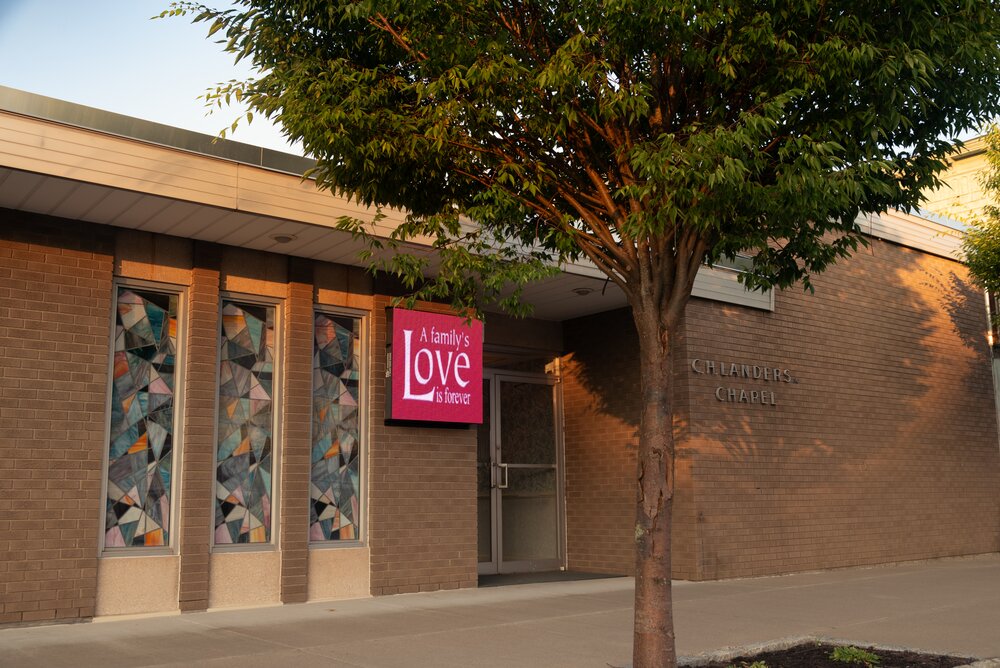21 Main Street - P.O. Box 2086 Sidney, New York 13838 |
Phone: (607) 563-3545 |
Email: info@landersfh.com
When Death Occurs
No matter if a death is sudden, or if it something that was a long time coming, the loss of a loved one makes us feel emotional and overwhelmed. No amount of preparation can fully prepare you for the loss of a loved one. When you are in a heightened emotional state, even the most basic decisions can seem staggering.
Who You Should Call First
Depending on how and where the death occurred will determine who your first call should be to.
If someone passes away at home or work, and was not under hospice care, emergency services should be notified immediately. The police will be dispatched to the location and the death will be investigated by the authorities and a medical examiner or coroner. The funeral home should be contacted upon approval by by the authorities.
If a person passes away at home under hospice care, contact the hospice representative (if they were not present) and they will advise family members of the proper procedures to follow.
If someone passes away in a hospital, nursing home or hospice facility, the staff of the care facility will notify you and the necessary authorities immediate after a death has occurred. If a funeral home choice has been provided to the hospital or nursing home, the facility will usually notify that funeral home of the death. If you are present at the hospital when the funeral director arrives, they will ask a few questions about the wishes of the deceased, as well as set up a time to come into the funeral home to make arrangements. However, if you are not present, a funeral director will contact you by telephone to discuss these arrangements.
Informing a Funeral Director
Once everything has been cleared with the proper authorities, the next call you place should be to a licensed funeral director. Funeral directors are here to help and advise you, and will work very hard to relieve the stress and logistics involved in funeral planning.
Meeting a Funeral Director
As soon as you are able, you should make an appointment with your funeral director to begin making final arrangements for your loved one. Deciding on these final arrangements may seem like a very daunting task, especially when in a heightened emotional state. Our funeral home staff have years of experience dealing with these issues, and will help you through the process every step of the way.
Making Arrangements
Once you have scheduled your arrangement conference, some important things to bring with you to the funeral home include:
- Completed "Vital Statistics" Form
- Cemetery Deed
- Obituary Information
- Clothing (including full underclothes and shoes, as well as any jewelry/glasses/rosary)
- Photograph for hairdressing purposes
- Recent photograph for memorial folders or obituary (if desired)
- Life Insurance Policies
- Veterans Discharge Papers (DD-214) if applicable
During the arrangements conference, the funeral director will guide you through the process of creating a memorable funeral for your loved one.
Payment Options
We accept the following options for payment:
- Cash
- Bank or Personal Checks and Money Orders
- All major credit cards
- Insurance Assignments
- Estates
- Financing may be available through Sidney Federal Credit Union
- For additional options, please contact the funeral chapel
Have a question? Ask the Director
We encourage you to use our beautifully designed interactive online tributes to pay your respects. Leave a condolence, share a memory, post a photo, light a candle and more!
We have served Sidney, Bainbridge, Afton, Masonville, Trout Creek, Sidney Center, Unadilla, Guilford, Mt. Upton, Gilbertsville and their surrounding communities for over 100 years.
Our local florists are committed to offering only the finest floral arrangements backed by their professionalism and prompt service.




